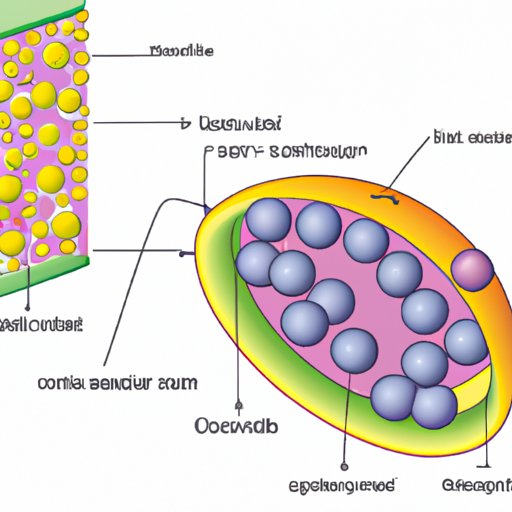Introduction
The cell theory is one of the most essential concepts in biology. It provides a basic understanding of the building blocks of life, which is crucial in furthering scientific research and medical advancements. Having a comprehensive knowledge of the cell theory is essential to understanding the way living creatures function, reproduce, and even evolve. This article aims to provide an in-depth explanation of cell theory, exploring its components, evolution, and importance in scientific research and medical treatments.
“The Cell Theory: A Beginner’s Guide to Understanding Cells”
A cell is the basic unit of life that is capable of performing all the processes necessary for survival. It is a complex structure with various components that work seamlessly to enable various biological functions. The cell theory comprises three fundamental components:
- All living things are made up of cells
- Cells are the basic unit of structure and function in living things
- All cells come from pre-existing cells
Understanding these components and their roles in biological processes is critical to the comprehension of cell theory.
“Exploring Cells: A Look into the Fundamentals of the Cell Theory”
Focusing on each component of the cell theory in detail can provide a better understanding of this essential concept. The first component states that all living things are made up of cells. From single-celled microorganisms to complex multicellular organisms like humans, all living things comprise cells.
The second component of the cell theory posits that cells are the basic unit of structure and function in living things. The unique structures of the cells enable them to perform various biological functions, depending on the type of cell.
The third component of the cell theory asserts that all cells come from pre-existing cells. This concept, known as biogenesis, is vital in understanding cell development and the transmission of genetic information from parent cells to daughter cells.
“From Hooke to Schleiden and Schwann: The Evolution of the Cell Theory”
The cell theory has a rich history spanning over 300 years. The concept of the cell was first developed by Robert Hooke in the late 1600s, who observed the cells using a microscope while examining the structure of cork. Later, Matthias Schleiden and Theodor Schwann further developed the cell theory during the 1800s by establishing that the cell is the fundamental unit of life.
The contributions of these three pioneering scientists were instrumental in shaping our understanding of cells. Their work paved the way for modern scientific research and medical advances.
“The Importance of the Cell Theory in Modern Scientific Research”
The importance of the cell theory in modern scientific research cannot be overstated. It informs a vast array of scientific fields, including microbiology, genetics, and developmental biology. The understanding of cells enables scientists to further research for treatments of diseases like cancer and genetic disorders.
Additionally, advancements in cell technology have paved the way for tissue engineering, stem cell research, and cell-based therapies that have helped thousands of patients worldwide.
“Cell Theory and Human Health: How Understanding Cells Can Help Us Treat Diseases”
The knowledge of cells is critical in advancing medical advancements and developing treatments for diseases. Understanding cells enables researchers to identify the root cause of diseases like cancer. They can then study and develop treatments that target specific cells while sparing healthy cells
Recent advancements in gene therapy rely heavily on the understanding of cells and their genetic makeup, opening up possibilities for a range of treatments for various diseases.
“Revolutionary Discoveries in the World of Cell Theory: A Review of Recent Studies”
Recent studies on cell theory have provided exciting new insights into the structure and function of cells. These advancements have led to the development of new techniques and technologies such as CRISPR-Cas9 that can transform genetics research and gene therapy. Even fields like botany and environmental science have benefitted from the knowledge of cells, further highlighting the importance of this fundamental concept in scientific research.
Conclusion
Cell theory is an essential concept that underpins much of modern science, including biology, genetics, and medicine. Throughout history, its evolution has contributed significantly to the advancement of scientific knowledge and cultivated a broad range of medical treatments that have improved human health globally.
It is impossible to overstate the critical role of cells in shaping the biological world around us. Precisely how these units work is an ongoing topic of study and discovery at the cutting edge of technology, and its significance will continue to resonate with the scientific community for years to come.
